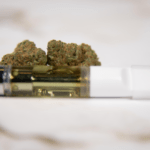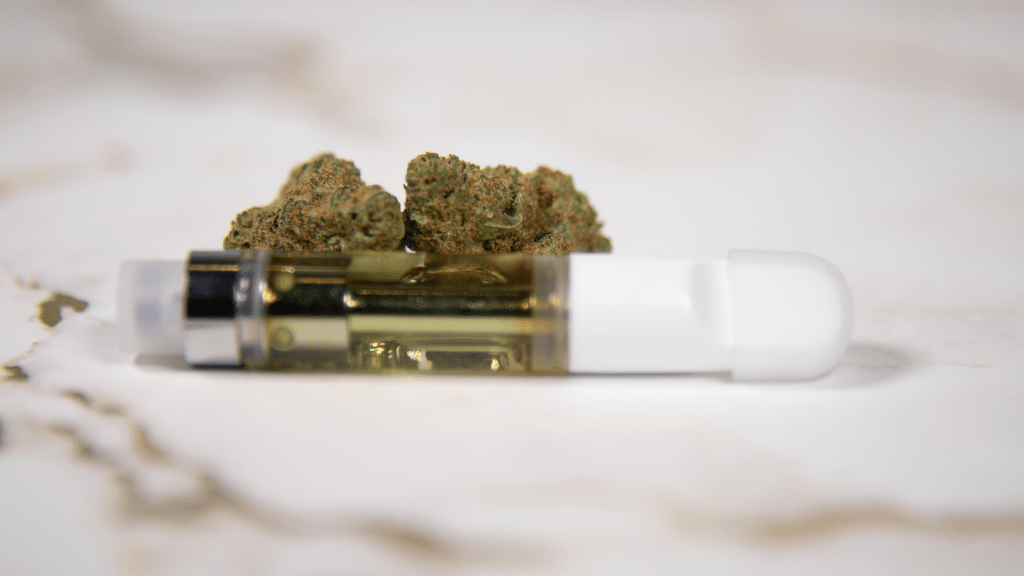Here’s where things stand today: U.S. service members are not allowed to use cannabis vape oil—medical or otherwise—and they’re also barred from using most hemp-derived products, including CBD. That prohibition is consistent across all branches and is rooted in concerns over readiness, drug-testing integrity, and the Uniform Code of Military Justice (UCMJ). In 2020, the Office of the Under Secretary of Defense for Personnel & Readiness issued guidance instructing the services to adopt punitive general orders banning hemp products. The Navy followed with ALNAV 074/20, explicitly prohibiting Sailors and Marines from using any product made or derived from hemp, including CBD, regardless of civilian legality. The only exceptions are FDA-approved cannabinoid medicines, such as dronabinol or Epidiolex, when prescribed by a licensed military provider.
The Air Force and Space Force have taken the same position, warning that even “zero-THC” products can contain trace levels sufficient to trigger a positive result on the military’s drug tests. Because the Department of Defense (DoD) operates under a zero-tolerance framework, any positive THC test—intentional or not—can result in administrative or disciplinary action. The policy aims to maintain trust in the drug testing system, and as such, all hemp or CBD vaping products are off-limits to airmen and guardians.
The Coast Guard issued a similar general order in 2020 prohibiting members from knowingly using any hemp or CBD product, no matter how small the THC concentration or what the product label claims. The policy includes a prohibition on drug paraphernalia related to such products. A positive THC result cannot be excused by asserting that the substance was “hemp” or “CBD.”
As for marijuana vape oil for medical reasons, federal law continues to govern the military regardless of state medical cannabis programs. Under Article 112a of the UCMJ and service-specific regulations, the use of marijuana—whether smoked, vaped, or ingested—remains punishable. Military policy clearly states that state legalization has no effect on federal or DoD law.
Could This Change in the Future?
There is some movement at the federal level that may eventually shape future military policy. In 2024, the Department of Justice formally proposed reclassifying marijuana from Schedule I to Schedule III under the Controlled Substances Act. This proposed shift would recognize marijuana’s accepted medical use and potentially ease restrictions on research and taxation. However, even if the rescheduling becomes official, it would not automatically change military policy. DoD regulations and federal criminal statutes would still need to be updated independently before any reform could extend to service members.
Experts note that rescheduling would be a significant legal and symbolic milestone but would not by itself alter the military’s zero-tolerance policy. The DoD and each military branch would have to issue new guidance or regulations allowing medical cannabis—or any cannabinoid-based product—for use by active-duty personnel. Until that happens, cannabis vape oil, CBD, and hemp products remain prohibited for all service members.
A key distinction lies in the policies for veterans. The Department of Veterans Affairs (VA) does not prescribe or supply cannabis, but it allows veterans to discuss their use of state-legal cannabis openly with VA providers. The VA also ensures that benefits are not denied based on cannabis use under state law. While this does not authorize or endorse cannabis use, it creates a more open environment for veterans seeking to integrate medical cannabis into their care plans—something active-duty personnel currently cannot do.
The Bottom Line
For now, the military maintains a strict zero-tolerance policy regarding any cannabis or hemp-derived vape oil use among active-duty members. The intent is to safeguard operational readiness, maintain testing integrity, and align with federal law. Only FDA-approved cannabinoid medications prescribed by a military doctor are permitted. Even as the national landscape shifts toward broader cannabis acceptance, it will likely take a formal policy overhaul within the DoD to see meaningful change in how the armed forces approach medical cannabis or vape oil use.
Sources





